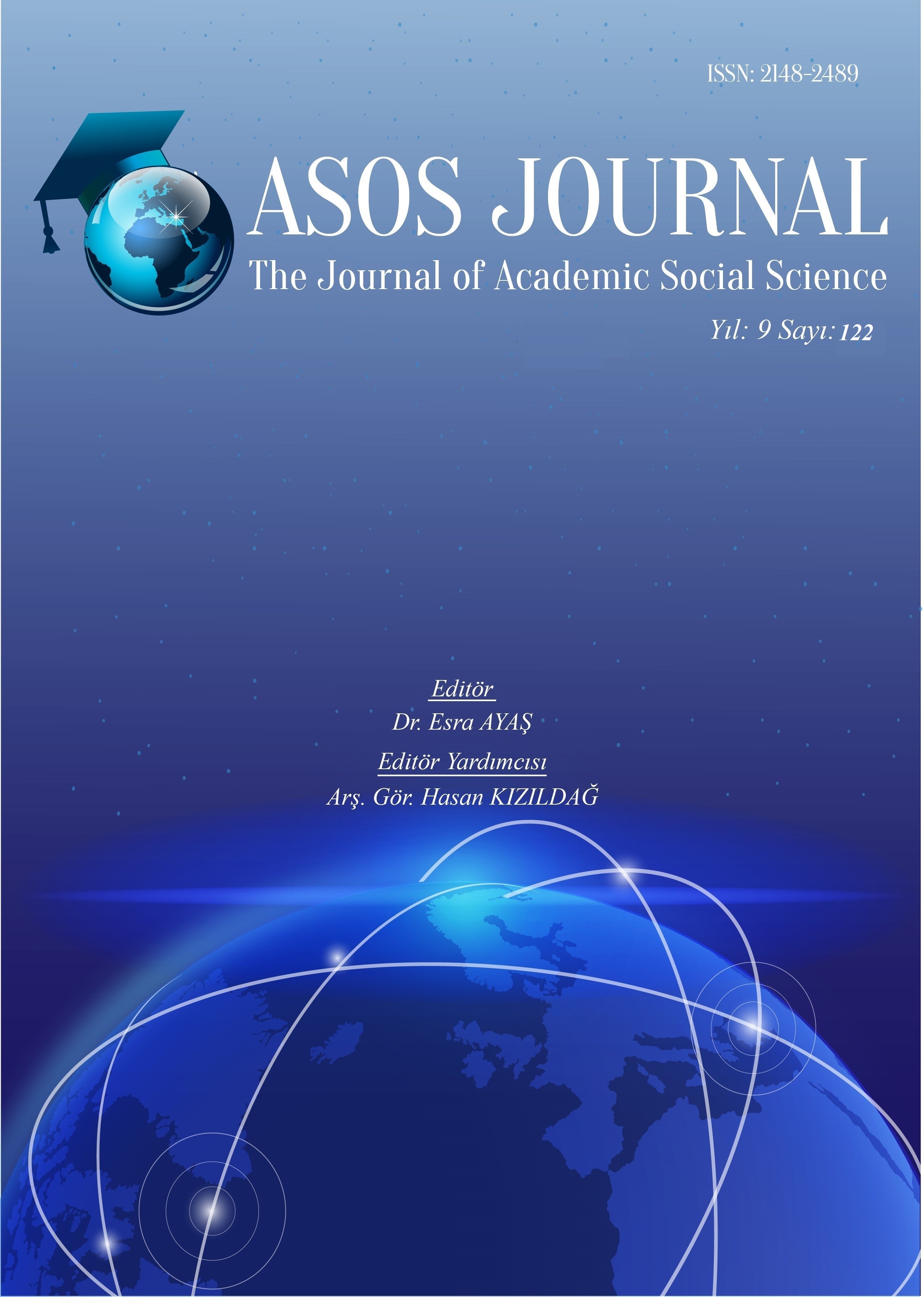COVID-19 PANDEMİ SÜRECİNDE ÜNİVERSİTE ÖĞRENCİLERİNİN TÜKETİM HARCAMALARININ VE TASARRUFLARININ KARŞILAŞTIRMALI ANALİZİ: GÖKÇEADA ÖRNEĞİ
Author :
Abstract
Toplumlar için olmazsa olmaz bir öneme sahip olan eğitim, şartlar ne olursa olsun hiçbir sekteye uğramadan devam ettirilmesi gereken bir sektör olarak karşımıza çıkmaktadır. Hayat boyu öğrenme felsefesi ile doğrudan bireylerin dolaylı olarak da toplumların gelişmesini sağlayan eğitim önemli etkilere sahiptir. Ulusal bir sağlık sorunu olarak görülen fakat artan hareketliliğe bağlı olarak hızla yayılan Covid-19 çok kısa bir süre zarfında küresel bir sorun haline gelmiştir. Bu durum gerek sosyal gerek kültürel gerek ekonomik gerekse eğitim alanında pek çok yenilik ve değişikliklerin yapılmasına neden olmuştur. Bu çalışma, Covid-19 pandemisi sürecinde online eğitim alan üniversite öğrencilerinin tüketim harcamalarını ve tasarruflarını analiz etmek amacı ile yapılmıştır. Çalışmada, Gökçeada Meslek Yüksekokulu’nda ve Gökçeada Uygulamalı Bilimler Fakültesi’nde eğitim alan 184 öğrenciye online anket uygulaması şeklinde yapılmıştır. Ankette katılımcıların Covid-19 pandemisi öncesi ve sonrasında tüketim harcamaları ve tasarrufları ile ilgili toplamda 20 soruya yer verilmiştir. Analiz sonucuna göre, , ankete katılan 184 kişiden 82’si (%44.6) online eğitim tasarruf ederken, 47’si (%25.5) tasarruf etmemiştir. Ayrıca, ankete katılan 184 kişiden 76’sının (%41.3) tüketim harcaması artmazken, 55 kişinin (%29.9) bu süreçte yapmış olduğu tüketim harcaması artmıştır.
Keywords
Abstract
Education, which has an indispensable importance for societies, emerges as a sector that must be continued without any interruption, regardless of the conditions. With the philosophy of lifelong learning, education, which directly enables individuals and indirectly the development of societies, has important effects. Covid-19, which is seen as a national health problem but spreading rapidly due to increasing mobility, has become a global problem in a very short time. This situation has led to many innovations and changes in the social, cultural, economic and educational fields. This study was conducted to analyze the consumption expenditures and savings of university students who received online education during the covid-19 pandemic. In this study, an online survey was applied to 184 students studying in Gökçeada myo and guby. In the survey, a total of 20 questions were included about the consumption expenditures and savings of the participants before and after the covid-19 pandemic. According to the results of the analysis, 82 (44.6%) of the 184 people who participated in the survey saved money on online education, while 47 (25.5%) did not. In addition, while the consumption expenditure of 76 (41.3%) of 184 respondents did not increase, the consumption expenditure of 55 (29.9%) increased during this period.
Keywords
- Akarsu, Y., Alacahan, Dilbaz, N., (2021). Covid-19 Pandemi Sürecinde Tüketim Tasarruf İlişkisi, INSAC Academic Studies on Social and Education Sciences, 185-206.
- Jin X, , Zhao Y., , Song W., & Zhao T., (2021). Save for Safe: Effect of COVID-19 Pandemic on Consumers' Saving and Spending Behavior in China, Frontiers in Psychology 12, 18. Frontiers | Save for Safe: Effect of COVID-19 Pandemic on Consumers' Saving and Spending Behavior in China | Psychology (frontiersin.org)
- Mehta, S., Saxena, T., & Purohit, N., (2020). The New Consumer Behaviour Paradigm amid COVID-19: Permanent or Transient?, Journal of Health Management, 22(2) ,291–301.
- Sheth, J. (2020). Impact of Covid-19 on Consumer Behavior: Will The Old Habits Return or Die?, Journal of Business Research, 117, 280-283.
- Strauss, V. (2020). Students wearing masks return to school as some countries start to reopen during COVID-19 crisis. Here’s what that looks like. The Washington Post.
- https:// www.washingtonpost.com/education/2020/05/04/students-wearing-masks-return- schoolsome-countries-start-reopen-during-covid-19-crisis-heres-what-that-looks-like/
- Sweeney, N. (2020). When the COVID-19 crisis finally ends, schools must never return to normal. The Guardian.
- https://www.theguardian.com/education/2020/apr/07/when-thecovid-19-crisis-finally-ends-uk- schools-must-never-return-to-normal.
- Viner, R. M., Russell, S. J., Croker, H., Packer, J., Ward, J., Stansfield, C., & Booy, R. (2020). School closure and management practices during coronavirus outbreaks including COVID-19: a rapid systematic review, The Lancet Child & Adolescent Health, 4(5), DOI: 10.1016/S2352-4642(20)30095-X
- Valaskova, K., Kramarova, K., & Bartosova, V., (2015). Multi Criteria Models Used in Slovak Consumer Market For Business Decision Making, Procedia Economics and Finance, 26, 174–182. https://doi.org/10.1016/s2212– 5671(15)00913–2
- https://www.sbb.gov.tr/wp-content/uploads/2021/03/PRE-Accession-Economic-Reform- Program-2021-2023.pdf (Erişim tarihi: 24.08.2021)





